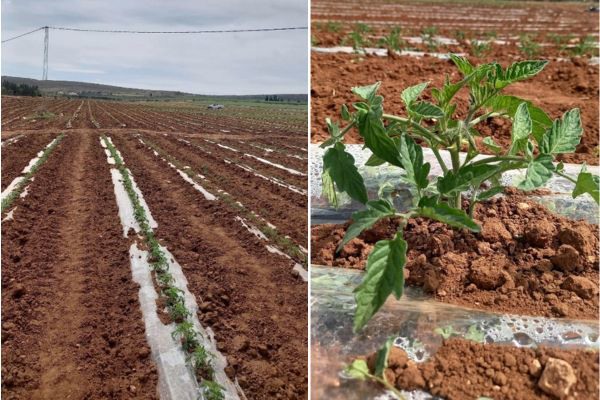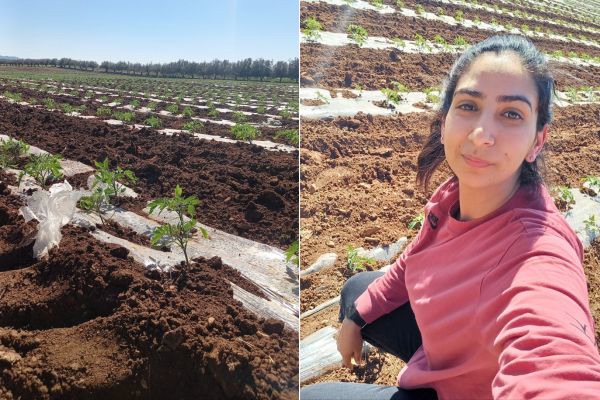Like other Mediterranean countries, Tunisia is facing a severe drought that has compelled the Tunisian government to implement water-use quotas, increasing the price of water for agricultural use, and even restricting household access to tap water.
Tomatoes are among the most impacted crops, according to Marwa Balti, an agronomist at Sicam Agri. She says, "The climatic conditions have led to a significant decrease in the tomato acreage. At our level, we estimate this decline at 10%, corresponding to our areas in the north of the country. The decrease is much more important at the national level since we have added new surfaces equipped with groundwater irrigation, which is not the case with our competition."

The drop in production comes at a time when demand for Tunisian tomatoes is increasing due to insufficient volumes from Morocco and Spain as well. Tunisian producers are deploying efforts to emerge in a better position this season, says Marwa. "For this campaign, we can still increase our volumes since we have planted only 70% of our area. There is a strong demand for Tunisian tomatoes from European markets, especially for peeled tomatoes and crushed, peeled tomatoes. This year, the opportunity is important for us to open new markets and develop our share in existing ones."
Sicam Agri is a contracting company that supports a significant part of the Tunisian tomato industry, according to Marwa. "We provide funding, seeds, equipment, and technical advice to growers, and we hold a 50% market share in the tomato sector for these specific services, corresponding to 5,000 hectares spread throughout the country. We are the only contractor to provide upstream 100% of production costs and one of the few to provide phytosanitary treatment products that are 100% homologated."

On Sicam's supply this season, and the demand, Marwa says, "We're expecting a volume of 360,000 tons, which is one-third of the national production of Tunisia. We grow the varieties Ercole, Gladis, H1886, Farah, Dorra, Savera, H7709, Saada, and Topspore. Usually, a significant part of our production goes to our tomato processing plant, and we export up to 40% of our fresh volumes. But foreign demand for fresh tomatoes is spectacularly increasing this season, coming mainly from Libya, France, Italy, and Germany. On the other hand, we are witnessing a slower demand from the Gulf countries."
For more information:
Marwa Balti
Sicam Agri
Tel.: +21626503648
Email: [email protected]
www.sicam-tunisia.com/agronomie










